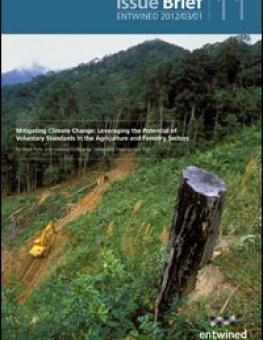
Mitigating Climate Change: Leveraging the Potential of Voluntary Standards in the Agriculture and Forestry Sectors
Voluntary sustainability standards are becoming increasingly popular tools for implementing and enforcing the adoption of sustainable practices in international supply chains.
But voluntary standards come in many shapes and sizes, with varying objectives. This policy brief provides a high-level overview of some of the key characteristics of three major types of voluntary standards and their potential relevance to mitigating climate change in the agriculture and forestry sectors.
You might also be interested in
December 2024 | Carbon Minefields Oil and Gas Exploration Monitor
In November 2024, 23 oil and gas exploration licences were awarded across five countries, with Russia granting the licences that account for the largest portion of embodied emissions.
Increased Support Needed to Achieve India's Clean Energy Goals
India is on track to achieve many of its 2030 clean energy goals but needs to step up government support measures to accelerate the deployment of offshore wind, electric vehicles, and green hydrogen, according to a new report.
Budgeting for Net Zero
This study estimates the cost gap for battery energy storage systems (BESSs), offshore wind, solar photovoltaic (PV), electric vehicles (EVs), and green hydrogen (GH2) to inform government support.
Artisanal and Small-Scale Mining of Critical Minerals
This report examines the potential for artisanal and small-scale mining (ASM) to take an expanded role in the global supply of critical minerals.